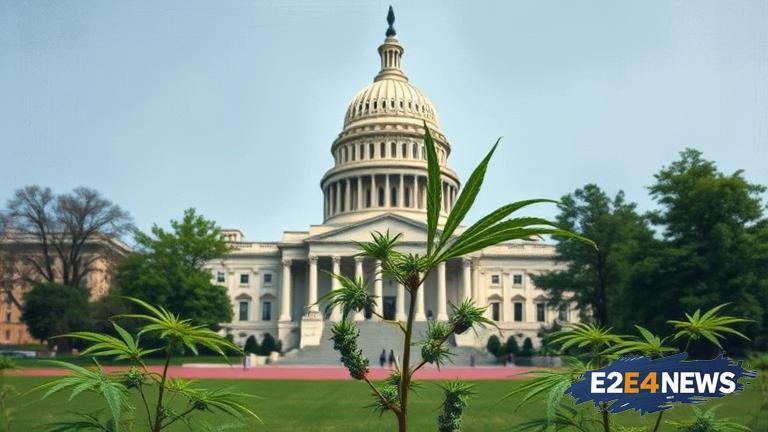The US Senate has passed a groundbreaking spending bill for the Department of Veterans Affairs, which includes a provision that enables doctors to recommend medical marijuana as a treatment alternative for veterans. This move is expected to have a significant impact on the lives of millions of veterans across the United States. The bill, which has been hailed as a major victory for veterans’ rights, aims to provide better access to medical care and treatment options for those who have served in the military. By allowing doctors to recommend medical marijuana, the bill acknowledges the potential benefits of cannabis in treating a range of conditions, including chronic pain, post-traumatic stress disorder, and anxiety. The provision is seen as a crucial step towards improving the overall well-being of veterans, who often struggle with mental and physical health issues after leaving the military. The bill’s passage is also a testament to the growing recognition of medical marijuana’s therapeutic potential, with an increasing number of states legalizing its use for medical purposes. The Department of Veterans Affairs has been under pressure to revisit its policies on medical marijuana, with many veterans and advocacy groups arguing that the current restrictions are outdated and ineffective. The new bill is expected to pave the way for further research into the benefits and risks of medical marijuana, which could lead to the development of new treatments and therapies. The Senate’s approval of the bill is also seen as a significant milestone in the ongoing debate about marijuana policy in the United States. As the country continues to grapple with the complexities of marijuana legalization, the passage of this bill highlights the need for a more nuanced and evidence-based approach to cannabis policy. The bill’s provisions are expected to have far-reaching implications for veterans’ healthcare, with many experts predicting that it will lead to improved health outcomes and reduced opioid use. The move is also likely to have significant economic implications, with the potential to create new jobs and stimulate growth in the cannabis industry. However, some critics have raised concerns about the potential risks and unintended consequences of expanding access to medical marijuana, highlighting the need for careful regulation and oversight. Despite these concerns, the bill’s passage is widely seen as a major step forward for veterans’ rights and a significant victory for those who have been advocating for greater access to medical marijuana. The bill’s provisions are expected to take effect in the coming months, with the Department of Veterans Affairs working to implement the changes and ensure that veterans have access to the care and treatment they need. As the US continues to navigate the complexities of marijuana policy, the passage of this bill serves as a powerful reminder of the need for compassion, empathy, and evidence-based decision-making. The bill’s impact will be closely watched in the coming months and years, with many experts predicting that it will have a lasting impact on the lives of veterans and the broader cannabis industry. The US Senate’s approval of the bill is a significant milestone in the ongoing effort to improve veterans’ healthcare and expand access to medical marijuana. The bill’s provisions are expected to have a major impact on the lives of veterans, providing them with greater access to the care and treatment they need. The move is also likely to have significant implications for the broader cannabis industry, with the potential to create new jobs and stimulate growth. As the US continues to grapple with the complexities of marijuana policy, the passage of this bill highlights the need for a more nuanced and evidence-based approach to cannabis policy. The bill’s passage is a testament to the power of advocacy and the importance of putting the needs of veterans first. The US Senate’s approval of the bill is a significant step forward for veterans’ rights and a major victory for those who have been advocating for greater access to medical marijuana.
